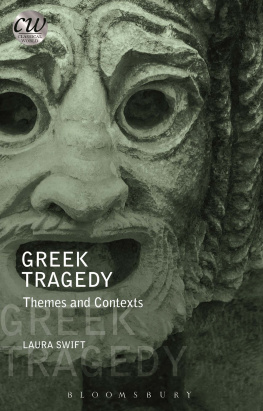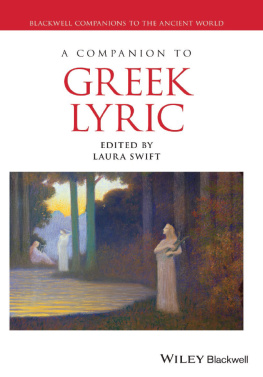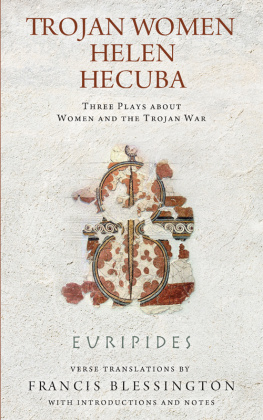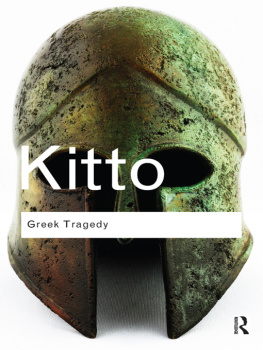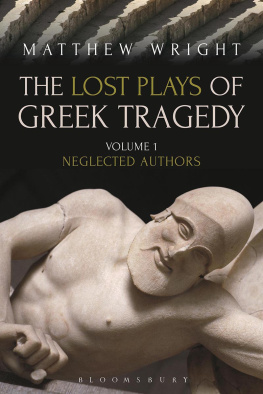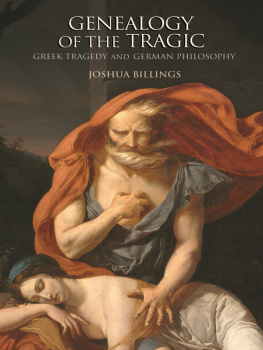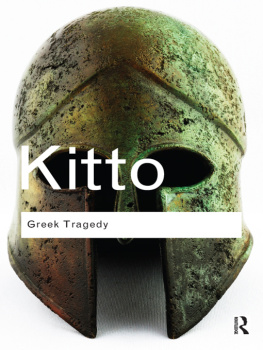Greek Tragedy
For Iona
Classical World Series
Aristophanes and His Theatre of the Absurd, Paul Cartledge
Art and the Romans, Anne Haward
Athens and Sparta, S. Todd
Athens under Tyrants, J. Smith
Athletics in the Ancient World, Zahra Newby
Attic Orators, Michael Edwards
Augustan Rome, Andrew Wallace-Hadrill
Cicero and the End of the Roman Republic, Thomas Wiedemann
Cities of Roman Italy, Guy de la Bdoyre
Classical Archaeology in the Field, S. J. Hill, L. Bowkett and K. & D. Wardle
Classical Epic: Homer and Virgil, Richard Jenkyns
Democracy in Classical Athens, Christopher Carey
Early Greek Lawgivers, John Lewis
Environment and the Classical World, Patricia Jeskins
Greece and the Persians, John Sharwood Smith
Greek and Roman Historians, Timothy E. Duff
Greek and Roman Medicine, Helen King
Greek Architecture, R. Tomlinson
Greek Literature in the Roman Empire, Jason Knig
Greek Sculpture, Georgina Muskett
Greek Tragedy: Themes and Contexts, Laura Swift
Greek Vases, Elizabeth Moignard
Homer: The Iliad, William Allan
Julio-Claudian Emperors, T. Wiedemann
Lucretius and the Didactic Epic, Monica Gale
Morals and Values in Ancient Greece, John Ferguson
Mycenaean World, K. & D. Wardle
Ovid: A Poet on the Margins, Laurel Fulkerson
Platos Republic and the Greek Enlightenment, Hugh Lawson-Trancred
The Plays of Aeschylus, A. F. Garvie
The Plays of Euripides, James Morwood
The Plays of Sophocles, A. F. Garvie
Political Life in the City of Rome, J. R. Patterson
Religion and the Greeks, Robert Garland
Religion and the Romans, Ken Dowden
Roman Architecture, Martin Thorpe
The Roman Army, David Breeze
Roman Britain, S. J. Hill and S. Ireland
Roman Egypt, Livia Capponi
Roman Frontiers in Britain, David Breeze
The Roman Poetry of Love, Efi Spentzou
Slavery in Classical Greece, N. Fisher
Spectacle in the Roman World, Hazel Dodge
Studying Roman Law, Paul du Plessis

Contents
Greek tragedy was hugely influential on the development of the Western dramatic tradition, and 2,500 years after their first performance these plays have not lost their enduring power. The tragedies continue to be performed, adapted and re-imagined for modern audiences, and are a fundamental part of our theatrical canon. Yet Greek tragedy is also a product of a culture that is in many ways very different from our own, and the familiarity of the stories of Medea, Oedipus or Orestes should not blind us to the ways in which they reveal values that may strike us as alien.
This book aims to offer an overview of what is distinctive about Greek tragedy, what defines it as a genre and what its particular preoccupations are. It will explore tragedys performance contexts and its place in Athenian life, and will identify some overarching themes shared by Aeschylus, Sophocles and Euripides. The surviving tragedies show great diversity, and it is not my aim to argue that there is a simple formula for tragedy or that the tragedians all followed the same basic pattern. Nevertheless, this book will show that we do find deep-seated continuities which enable us to better appreciate tragedys role in Greek life and the central ideas that it explores.
This book is aimed for undergraduates and advanced school pupils, and assumes no knowledge of Greek (translations are my own). In a book with thirty-two plays available for discussion, I do not attempt to give detailed plot summaries beyond setting a passage in context. I have aimed to refer to a large number of tragedies in the hope of offering a holistic overview, so that students focusing on a particular play will find something to help them. Nevertheless, I go into greatest detail on the plays that are most popular on todays school and undergraduate curricula, since these are most likely to be familiar to the reader. There are few references to secondary literature, but a list of suggested reading at the end of the volume will direct anyone who wishes to take his or her study of Greek tragedy further.
I would like to thank Bill Allan, Adrian Kelly, Roger Rees and the anonymous reader for their comments and guidance at various stages of this project, and also Alice Wright from Bloomsbury for her helpful assistance. This book has been greatly enriched by teaching Greek tragedy to undergraduates at Oxford, UCL and the Open University, as well as talks given at schools and sixth-form conferences, and I am grateful to the students whose input and reflections have taught me much about what makes Greek tragedy so special.
What makes something a tragedy? Nowadays it is a term we use freely to describe a catastrophic event. Calling something a tragedy elevates it above normality, and can be a way of showing respect for the suffering of those involved. It also suggests that what has happened is extraordinary or unexpected: we would not normally describe the peaceful death of an elderly relative as tragic, although we might well use the word of someone cut off in their youth. When we approach a Greek tragedy, these cultural associations inevitably shape what we expect to see, and it is true that the plots of many Greek tragedies involve death and disaster. However, our understanding of what makes something tragic has been shaped by thousands of years of interpretation, and filtered through the views of ancient scholars and teachers, and the history of later drama. This chapter will explore what an ancient audience might have expected when they went to see a tragedy. We will investigate the origins, performance context, and stylistic features of Greek tragedy, and examine what lies at the heart of tragedy and sets it apart from other forms of poetry.
Festival, city and play
Tragedy developed in the late sixth century BC and was performed for hundreds of years, but its period of greatest flourishing and the period that all our surviving plays date from (with the exception of Rhesus, which was probably the work of a later poet) was the fifth century. Thus tragedy developed alongside Athenian democracy, during the time that Athens grew to be the mistress of a large empire and a cultural magnet for the Greek world. Tragedy grew in popularity across the Greek world, and by the fourth century BC many other Greek cities had their own theatres. It was, however, in its origins an Athenian genre, and despite the universal themes and wide appeal of the surviving plays, they are an art form rooted in a particular time and place. Almost nothing is known about the origins of tragedy, but the oldest and most valuable evidence is that of Aristotle, who in his Poetics links the birth of tragedy to the improvisations performed by leaders of the dithyramb, a type of choral song (1449a). Thus it is likely that tragedy grew out of choral performance (an issue we will explore in Chapter 7), and possible that it was originally a cult song in honour of Dionysus. However, even if this is true, tragedy soon broadened its range of subjects (as did dithyramb), and we should not over-emphasize the importance of Dionysiac cult for interpreting the plays themselves.
Nevertheless, tragedy remained Dionysiac in the sense that it was performed at Athenian festivals honouring the god. The most important of these was the Great Dionysia, a festival held in the spring of each year. It was also performed on a smaller scale at a winter festival, the Lenaea. Tragedy formed the central attraction of the Dionysia, and took the form of a competition between three poets, each of whom was allocated a day in which to put on a production of three tragedies followed (usually) by a satyr play: a humorous play featuring a chorus of satyrs, half-human and half-horse followers of Dionysus who were famous for their drinking and sexual antics. Before the tragedy performances came a dithyramb competition between the ten tribes of Athens, each of which had to enter a chorus of fifty adult men and another of fifty boys. The festival finished with a competition between five comic poets, each of whom produced a single play. Alongside these cultural performances were festivities in honour of the god, including a huge procession, sacrifices and feasts.

